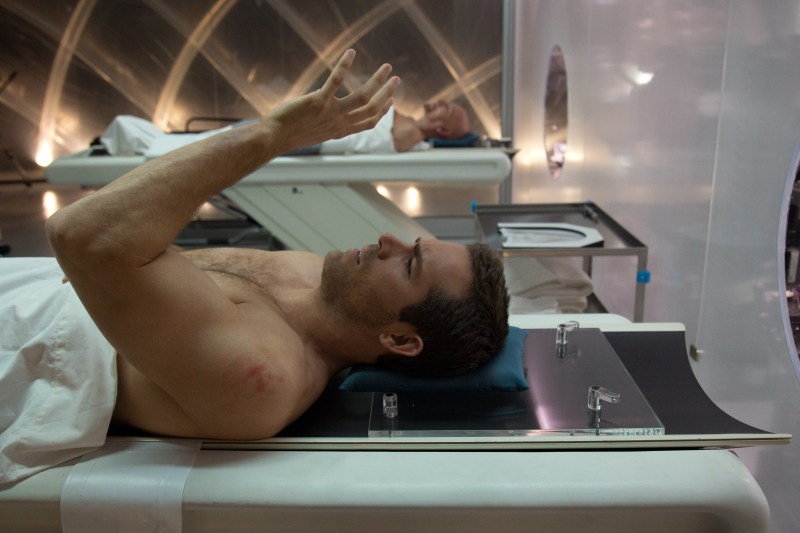“Self/less” explores a world in which a person’s memories and thoughts can be extracted and placed into a healthier body — a process that, in essence, grants the user immortality. Instead of realizing the creative potential behind the ethics and difficulties of such a procedure, however, director Tarsem Singh’s latest feature sticks to a confusing storyline with agonizingly strange plot details, insufficient character development and bland, unremarkable action scenes.
At the age of 68, Damian (Ben Kingsley), an extremely wealthy businessman, is on the last legs of his life. Wasting away, Damian is finally forced to face the harsh reality that money cannot buy everything. That is, until the aging mogul is offered another chance at life by the the enigmatic Professor Albright (Matthew Goode) who, after a few spins in a fancy machine that resembles an MRI scanner, transports Damian’s mind into a younger figure (Ryan Reynolds). With the procedure’s side effects kept in check by a mysterious red pill, Damian then begins his new life in a lavish New Orleans apartment, complete with towering glass chandeliers and an expensive BMW. But when he misses just one dose of his medication, he suddenly finds his life spinning out of control, his mind invaded by lucid visions of an unknown woman (Natalie Martinez) and a young girl (Jaynee-Lynee Kinchen).
From here, instead of tackling the questions of ethics that rapidly begin to arise — including the nature of identity, the morality of scientific exploration and the price of aging — “Self/less” devolves into a series of unoriginal fight scenes and car chases that, while aesthetically appealing, all seem rather cliché.
The biggest problem with the film is the speed of the personality transformation from Kingsley’s callous Damian to Reynolds’ moral hero. The “new” Damian’s character arc is contrived and woefully accelerated, making it hard to accept that Kingsley and Reynolds could ever be playing the same man in different bodies. This issue stems both from Reynolds’ inability to ape Kingsley’s mannerisms, and from the script’s failure to effectively pass the baton from one actor to another.
The remainder of the film is also plagued by similar illogicalities, further complicating an already blurry storyline. It’s odd that characters can access information about the secretive body swapping procedure online on Wikipedia, though the nefarious Albright seems desperate to hide the details. The young girl, revealed to be the daughter of Damian’s donor, is also exceptionally quick to accept her supposedly dead father’s return, failing to ask questions about the abrupt reappearance of her father. Singh also neglects to address one of the central points of the film: the science behind the technology used by Albright. The script asks us to so grossly suspend our disbelief that it almost insults our intelligence.
In turn, Singh attempts to make up for the problems of the film with some fiery action scenes, though even these are uninspiring. While attractively shot, the constant stream of bullets and punches are pointless and without clear motivation. Most of the scenes are appealing to the eye, as the production design, camerawork and cinematography are all well executed, but what’s the point when the rest remains a jumbled mess?
The film isn’t entirely without positives, however. Kingsley is enjoyable in his role as the sour real estate tycoon, and Kinchen is brilliant as Anna, the aforementioned daughter of Damian’s host body, adding innocent humor to an otherwise banal film. While he could have done without his New York accent, Kingsley certainly has the character and personality needed to play the old Damian, while Kinchen’s portrayal of Anna is both unforced and heartwarming, displaying a surprising amount of talent for such a young actress. Reynolds, however, fails to compare. While likeable, Reynolds simply does not have the acting chops to thrive in a role that requires much more character depth than he cares to display.
In the end, “Self/less” tries to take on a very promising storyline, and, though visually alluring, has too many problems to be fully enjoyable.
Contact Andrew Choi at andrewyoonchoi ‘at’ gmail.com.
